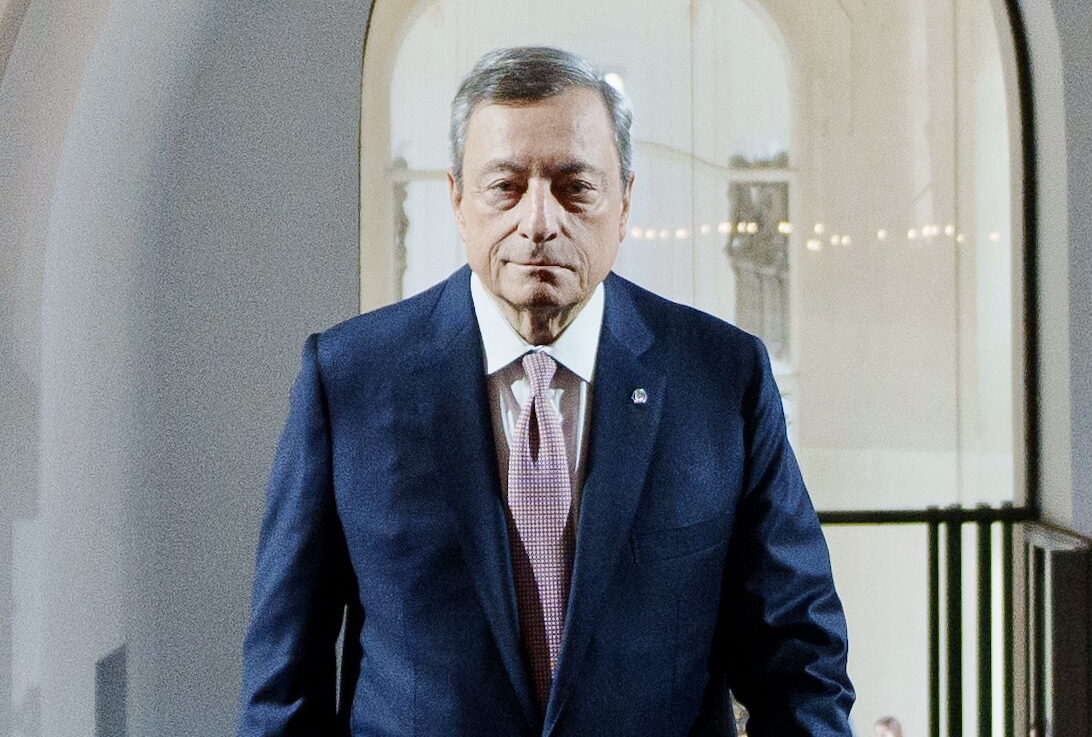Here are the effects of Draghi’s tax (and not only) on the hydroelectric sector

The Italian hydroelectric sector is in difficulty: drought reduces energy generation, expiring concessions paralyze investments (the government is divided on what to do) and Draghi's tax on extra profits has an impact of 1.4 billion euros
According to Assoidroelettrica, the association of the Italian hydroelectric supply chain, the tax on extra profits of energy companies – established in 2022 by Mario Draghi's government with the Sostegni-ter decree – has weighed on the sector for 1.4 billion euros. A sector, the hydroelectric one, destined to have an even more important role in Italian electricity generation, given the objectives of ecological transition and progressive detachment from fossil fuels: hydroelectric energy is a renewable source, with zero greenhouse gas emissions and in able to guarantee a storage capacity through pumping.
THE PROBLEMS OF ITALIAN HYDROELECTRICITY
In Italy there are approximately 4700 active hydroelectric plants, mainly concentrated in the north: Piedmont, Trentino Alto-Adige, Lombardy and Veneto). According to Business Minister Adolfo Urso, the Italian hydroelectric technology supply chain – the solar photovoltaic supply chain is mainly Chinese – has a value of over 25 billion euros, "second in Europe only to Germany, with a contribution to imports of 4 % of total manufacturing and with a consistently positive balance", reports Il Sole 24 Ore .
Last year, in particular, the drought had a negative impact on Italian hydroelectric production, which fell by 19.5 terawatt hours; in the first seven months of 2023 output lost 9 TWh. Less hydroelectric generation leads to greater reliance on natural gas (and therefore higher costs for imports) or coal (the most emissive hydrocarbon).
THE IMPACT OF THE TAX ON EXTRA PROFITS
According to Paolo Taglioli, general director of Assoidroelettrica, this source "is going through the most difficult moment in history not only due to a drought that has never been so severe and prolonged before, but also due to the very heavy effects of Sostegni-ter", he said during the association's annual conference.
As a study by Assoidroelettrica reminds us, the 2023 budget law has provided for a solidarity contribution to be paid by electricity producers and retailers. “This contribution involves the application of a rate of 50% on the amount of IRES income exceeding by at least 10% the average of the total IRES income achieved in the 2018-2021 tax periods. The amount of the contribution can reach up to 25% of the Company's net assets at the closing date of the 2021 financial year".
“The solidarity contribution for 2023”, explains the association, “applies to producers of renewable energy, whereas the EU regulation is very clear in limiting the application of the solidarity contribution to gas and crude oil operators only. Furthermore, the EU regulation provides for a much lower rate (33%), applicable only if the increase in profits is greater than 20% (and not 10%)".
WHAT WILL THE MELONI GOVERNMENT DO ABOUT CONCESSIONS?
Compounding the situation in the sector – which he defined as "completely paralysed" – is the uncertainty over concessions, most of which will expire in 2029, discouraging companies from making investments.
The government is working on a decree that should, among other things, extend hydroelectric concessions , but has not yet defined a rule. The internal divisions of the majority have something to do with it. The Ministry of Business (run by Fratelli d'Italia) and the Ministry of the Environment (in the hands of Forza Italia), which are working on the dossier, have unanimous positions; but the decree is unlikely to please the League, which would prefer a "regionalisation" of concessions aimed at favoring the northern territories and mixed public-private companies.
At the Assoidroelettrica conference, the Minister of the Environment Gilberto Pichetto Fratin declared only that the Italian government "supports greater harmonization of regulations at a European level to protect the competitiveness of our companies on the national and foreign markets". It is possible that the government wants to align the duration of the concession titles with the European average, which is around sixty-ninety years; in Italy it reaches thirty years, but in some regions it even drops to fifteen.
ON HYDROELECTRICITY IN EUROPE EVERYONE DOES IT FOR THEMSELVES
From a regulatory point of view there is no uniformity in Europe on hydroelectric derivations. In southern Europe (including Italy) concession prevails; in Northern Europe permission; in Greece and Norway the license. The duration of permits is also extremely varied: in Spain it is seventy-five years; in Austria you can reach ninety; in Portugal the norm is thirty-five years; in France between thirty and forty years.
This is a machine translation from Italian language of a post published on Start Magazine at the URL https://www.startmag.it/energia/idroelettrico-problemi-tassa-extraprofitti-concessioni/ on Sun, 01 Oct 2023 05:00:19 +0000.
